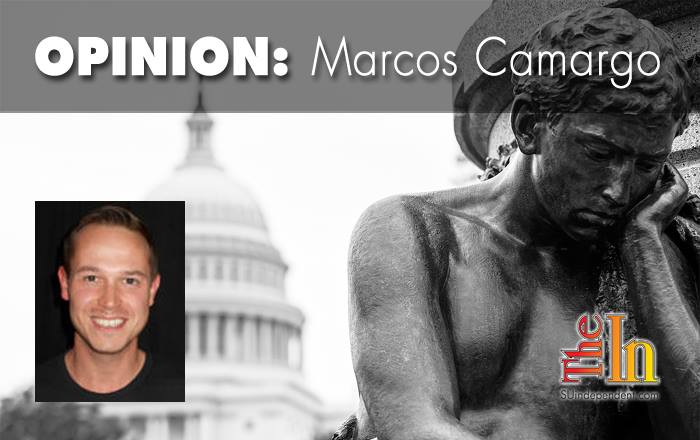When I moved to Utah from Oregon several years ago, I considered myself a conservative-leaning moderate. I grew up in the country outside a suburb of Portland, and my high school’s demographic split about fifty-fifty between rural families and suburban families. It was probably this split that made my high school community about as moderate a place as possible. Being a politically aware teenager, I remember my 10th grade history teacher conducting an in-class poll right before the 2000 presidential election. George Bush won the poll but only by two votes, which showed how “middle-of-the-road” my early political milieu really was.
After moving to Utah to attend BYU, I remember several peers saying that I must be a liberal because I was from Oregon. At first, fanatically defended myself, claiming what I had always claimed: that I was a good, clean moderate.
In many ways, I still fall pretty much in the center of the spectrum, although I’ll admit that some of my views have evolved over the years. Since then, my sojourn in Utah has led me to understand that the political boxes in which we place ourselves shift largely based on where we live.
I always thought a moderate could see both sides of an issue, didn’t follow party lines, and made rational decisions in both political issues and candidates. Unfortunately, in Utah, someone who follows this line of thinking is called a liberal.
So I’m a liberal, but only when I’m in Utah. If I visit my parents in California, I suddenly become a moderate again.
Then three years ago, I moved to St. George and became, gulp, a radical leftist, but only when I’m in St. George. When I visit my brother up in Salt Lake City, I suddenly become a liberal again. It’s such a strange scenario that I have personally coined the term, “externally imposed geographical political morphing” in order to describe the phenomenon.
Anyway, what’s my point? My moderate mindset compels me to challenge extremism. And this mindset has led me to observe two things about this community: first, St. George is conservative, and what I mean by “conservative” in this context is that St George is extremely conservative. So conservative that an outsider might be tempted to use the term, “reactionary.” Second, none of the local conservatives seem to realize that they’ve bought this reactionary message wholesale. Whichever pundit or politician can bellow “conservative” loud enough can get a following around here.
But now that this region houses a university, boasts a growing retirement community, and becomes an increasingly popular tourist destination, a potentially scary proposition must be considered: it is time to start accepting a dialogue that includes alternative ideas.
For many, this might serve as a sign of the end times: the old guard is losing control, the children must be shielded, and the past must be conserved.
The fear that comes when the old order is challenged can be seen on full display in events that have occurred in just the past month here in St George.
An op-ed written by a Dixie professor suggesting the community reopen the debate on changing the university’s name caused a huge stink. Many of the comments on social media, besides making no sense, served to showcase the vitriolic backlash one will receive for challenging the status quo. Those who supported a revived debate, myself included, were told, among other things, to “just leave” because those who opposed a name change hollered that they were being robbed of their “free speech.”
The fact that free speech became the rallying cry for those opposed to a name change created a hilarious juxtaposition just a few weeks later when many of these alleged free speech advocates just about soiled their britches after this publication, The Independent, published a photo depicting a couple wearing LDS temple garments.
To these people, I’d like to ask, “Free speech goes both ways, right?” Although I’d like to add that I’m not sure how changing the name of a public university could ever constitute a free speech violation. I don’t seem to remember the part in the First Amendment that grants the entity of a university the right to name itself whatever it wants.
My point is this: the outsiders are here. They have infiltrated southern Utah, and they are not leaving. Fortunately, they do not want to brainwash this community. They want to unbrainwash it by offering a veritable buffet of fresh ideas.
After all, “For it must needs be, that there is an opposition in all things,” 2 Nephi 2:11.





Change just for the sake of it does no good. A university should not change its name just because of politcal correctness.
Marcos! This article was brilliant, mate! So fun to read and the message is as clear as day! It’s great to watch you grow as a writer!